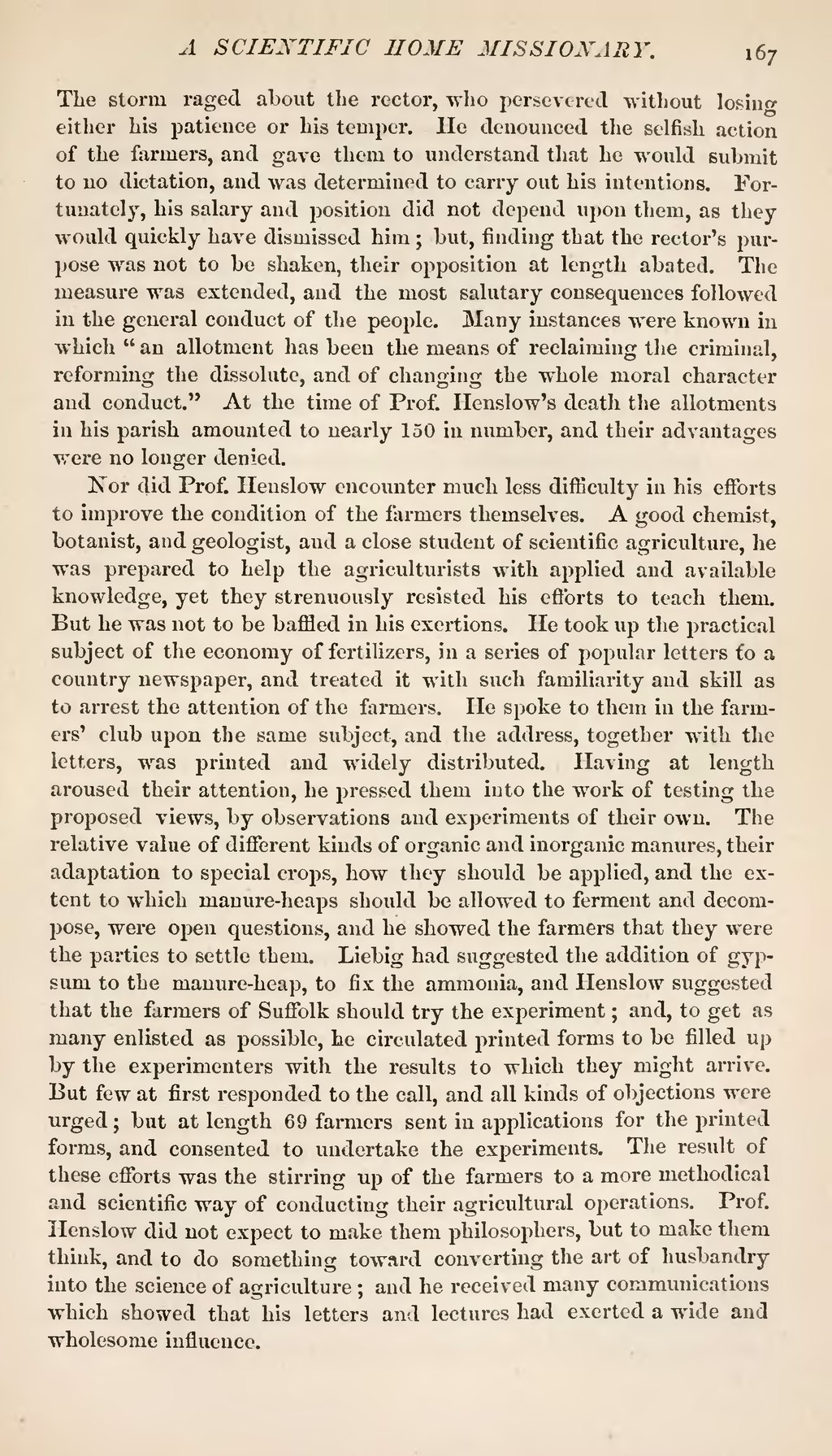The storm raged about the rector, who persevered without losing either his patience or his temper. He denounced the selfish action of the farmers, and gave them to understand that he would submit to no dictation, and was determined to carry out his intentions. Fortunately, his salary and position did not depend upon them, as they would quickly have dismissed him; but, finding that the rector's purpose was not to be shaken, their opposition at length abated. The measure was extended, and the most salutary consequences followed in the general conduct of the people. Many instances were known in which "an allotment has been the means of reclaiming the criminal, reforming the dissolute, and of changing the whole moral character and conduct." At the time of Prof. Henslow's death the allotments in his parish amounted to nearly 150 in number, and their advantages were no longer denied.
Nor did Prof. Henslow encounter much less difficulty in his efforts to improve the condition of the farmers themselves. A good chemist, botanist, and geologist, and a close student of scientific agriculture, he was prepared to help the agriculturists with applied and available knowledge, yet they strenuously resisted his efforts to teach them. But he was not to be baffled in his exertions. He took up the practical subject of the economy of fertilizers, in a series of popular letters to a country newspaper, and treated it with such familiarity and skill as to arrest the attention of the farmers. He spoke to them in the farmers' club upon the same subject, and the address, together with the letters, was printed and widely distributed. Having at length aroused their attention, he pressed them into the work of testing the proposed views, by observations and experiments of their own. The relative value of different kinds of organic and inorganic manures, their adaptation to special crops, how they should be applied, and the extent to which manure-heaps should be allowed to ferment and decompose, were open questions, and he showed the farmers that they were the parties to settle them. Liebig had suggested the addition of gypsum to the manure-heap, to fix the ammonia, and Henslow suggested that the farmers of Suffolk should try the experiment; and, to get as many enlisted as possible, he circulated printed forms to be filled up by the experimenters with the results to which they might arrive. But few at first responded to the call, and all kinds of objections were urged; but at length 69 farmers sent in applications for the printed forms, and consented to undertake the experiments. The result of these efforts was the stirring up of the farmers to a more methodical and scientific way of conducting their agricultural operations. Prof. Henslow did not expect to make them philosophers, but to make them think, and to do something toward converting the art of husbandry into the science of agriculture; and he received many communications which showed that his letters and lectures had exerted a wide and wholesome influence.
